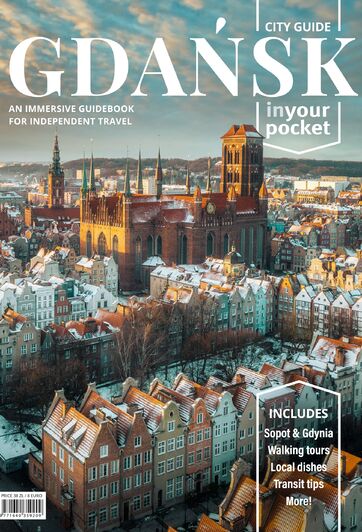IYP Book Review: The Polish Revolution: Solidarity by Timothy Garton Ash
more than a year agoAlthough postscript chapters have been added, much of the original text remains the same, and his prose is a tense, bleak reflection on the times. Written at the height of the cold war, the author is left to reflect in one of the concluding chapters ‘There is no historical law which says that empires must evolve peacefully, and the post-war history of Eastern Europe gives us little reason to believe this one will. It is therefore probable that those tensions will not be reduced, and we shall, sooner or later, face a nuclear war.' There is little cause for optimism in Ash‘s original work, and the author clearly holds the view that Poland is doomed to remain under the thumb of the Kremlin for decades to come.
Covering the meteoric rise of Solidarity - within months of its inception some ten million Poles were members, including some 30% of the ruling Communist elite – Ash documents the innocence and idealism of the early months, and of the imminent threat of Soviet invasion. The background to the strikes is covered in detail – including the protests in 1970 - and no stone is left unturned in this meticulous work. The key players in the drama are examined in minute detail, and the author paints a vividly lifelike picture of Lech Wałęsa: ‘Now he teases the crowd in Victory Square. His speech is impossible to reproduce, disjointed, full of slang, wildly ungrammatical, at times almost nonsensical… and then the masterly common touch… was he speaking off the top off his head? Either way, the crowd love it.'
However it is the chapter on the declaration of Martial Law that carries the most impact. Simply titled ‘War‘, the shock and bewilderment of the governments actions is carried through to the reader. ‘People could not have been more taken aback if martians had landed‘, comments one onlooker. Although expertly organised, leaders of Solidarity were completely caught on the hop by General Jaruzelski. Within hours communications had been cut, and the lions share of leaders apprehended. The tension of those days translates superbly into print.
As we know, Poland went on to buckle the communist system, and this book serves as a superb window into the past; an important reminder on a chapter of history that is still relatively unknown in the west. In his postscript the author examines the failings of Solidarity post 1989, as well its role in the collapse of Soviet Union. This is a weighty read, but the author succeeds in turning a serious subject into an addictive lesson in Poland‘s stormy past.



Comments